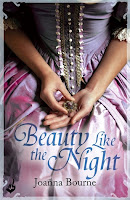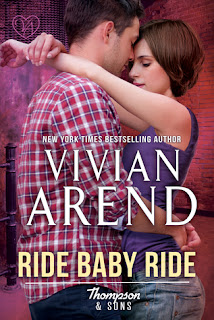I received an ARC of this book from the author in response for an honest review. My opinion is my own.
After her brother falls and breaks his arm on one of his frequent holidays, mechanic Kyla hits breaking point with managing her family's auto shop alone. When an upcoming conventions provides her with the opportunity to get her dream costuming business off the ground, she makes the decision to bring in extra help for the auto shop: old family friend Jericho Salomon.
Jericho has no desire to come back to the home town that holds so many painful memories, but he owes Kyla's family a favour, so he tells the biker group he's a part of that he'll be away for a few weeks, and heads back to Snoqualmie.
When I first read the blurb for Game of Hearts, I have to admit it made me nervous, since I'm not a big fan of the MC hero trope. But after the nuance of her last two books, I trusted Yardley to make it work, and she did. As a character, Jericho managed to embody the bad boy hero without comprising his moral integrity, which sits much better with me than the morally ambiguous hero. In fact, one of the major conflicts Jericho deals with is trying to suppress a revolt led by a member of the group wanting to move into more Sons of Anarchy territory.
Yardley's previous heroines have been interesting, complex and independent women, and Kyla is no exception. As a female mechanic, she continually up against male customers who second-guess and patronise her as a female mechanic. Her way of handling this - being super chipper and doing Kegels - was both funny and relatable, and I think I might adopt it myself in my day-job, where Joe Bloggs frequently thinks he has a better handle on the healthcare system and medical stuff in general than a mere receptionist (read: a medical administrator who can work in over half a dozen capacities throughout the hospital, although there's nothing wrong with only being a receptionist).
Another aspect of Kyla that I - and I suspect many other readers - found to be very realistic nuanced was her relationship with her brother. The lack of boundaries and continual giving on her side and taking is something that really closely and poignantly aped a lot of real-life familial relationships. Being my idealistic, total-HEA-craving self, I closed the book wishing we had seen a little bit more of a reckoning on this front, but on another level, I think that maybe that would take away from the realism of it. Maybe it's enough to know that - with Jericho as a support and circuit-breaker - Kyla and her brother will be able to achieve a more emotionally healthy relationship in the future.
Kyla and Jericho were both great, strong characters, and - while I was keen for them to get together - I didn't feel that the romantic arc was as strong as in the last two books. Some parts were as outstanding as always: the two are shown to be very sexually compatible (there are some hot sex scenes), and I liked the way Jericho supported and encouraged Kyla both with regards to her new business and her boundary setting. However, each was caught up with their individual conflict and character arc, which made it hard to see how they would actually function as a couple. This - together with the relatively late introduction of the romantic conflict and the Deus-ex-machina way it was solved - meant that I found the HEA less convincing or satisfying that in the other Fandom Hearts novels.
As you can see, Yardley's previous work has left Game of Hearts with some pretty big shoes to fill. Even if I feel like it didn't quite achieve that, I still really enjoyed it, and I'd definitely recommend it, especially if geeky, funny and heart-warming contemporaries with great heroines are your thing.























